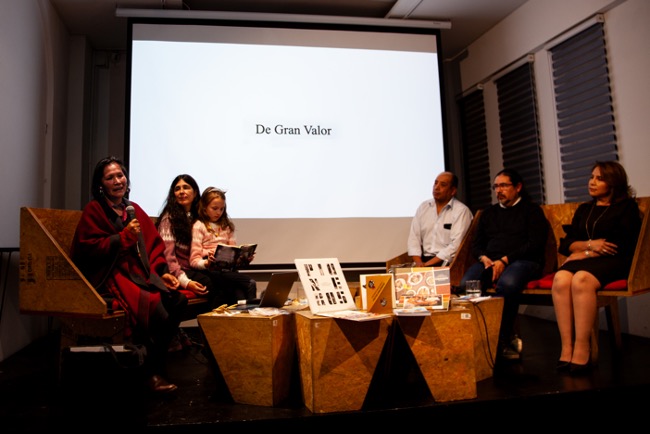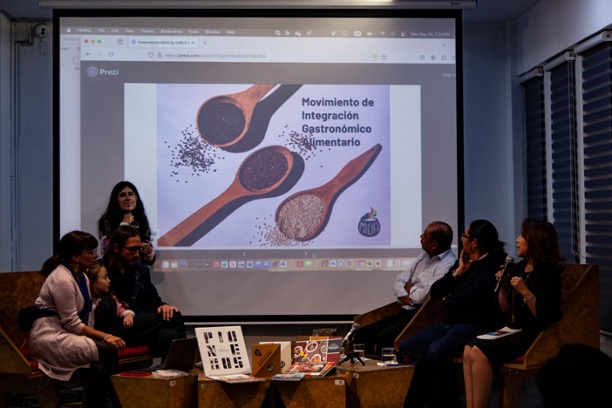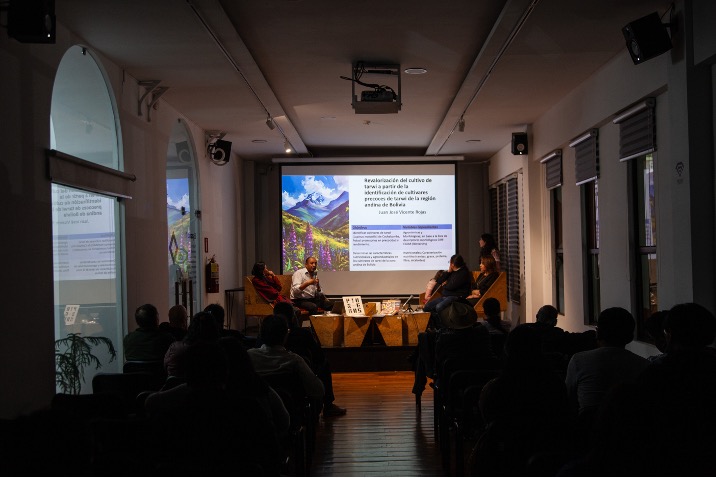Alejandra Salinas leads lectures at CCELP, La Paz, Bolivia
De Gran Valor, Seminar organized by Aeron Bergman and Alejandra Salinas at CCELP, La Paz - Centro Cultural de España en La Paz, Bolivia, 30 September 2024
Alejandra Salinas, painting professor, organized in collaboration with her partner, Aeron Bergman, a series of lectures at Centro Cultural de Espana La Paz, Bolivia as a continuation of her research in under-appreciated native plants. Tarwi is a pre-Hispanic Andean legume with high cultural importance, but it has been in decline as a staple ingredient in recent generations.
In addition to its historic cultural significance, Tarwi has many practical advantages such as great genetic diversity and adaptability to soils, precipitation, temperature, and altitude, and is healthy for both people and the soil. Tarwi fixes atmospheric nitrogen in the soil and its alkaloid components act as a natural repellent for insects, fungi, bacteria, and other pests.
Professor Salinas lead talks with María Eugenia Galarreta, producer and processor of Tarwi, José Vicente Rojas, agricultural engineer, professor of Experimental Designs and Biostatistics in the Agricultural Engineering Program at the Universidad Mayor de San Andrés and Universidad Pública de El Alto. Agustina Huajlliri, Tarwi producer in Carabuco, Bolivia and Leslie Salazar, executive director of the Bolivian Food and Gastronomic Integration Movement (MIGA), a non-profit civil entity that seeks to enhance the value of Bolivian Food Heritage.


